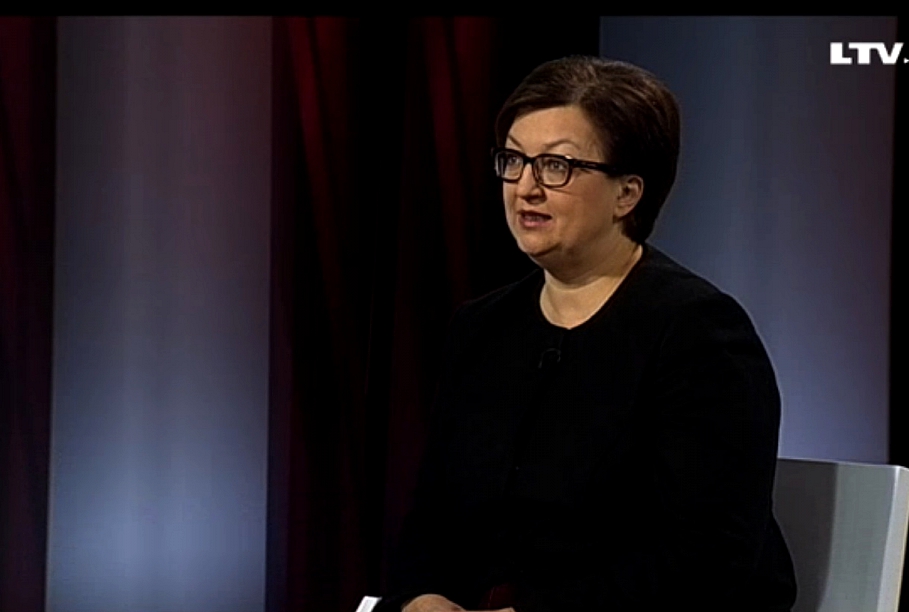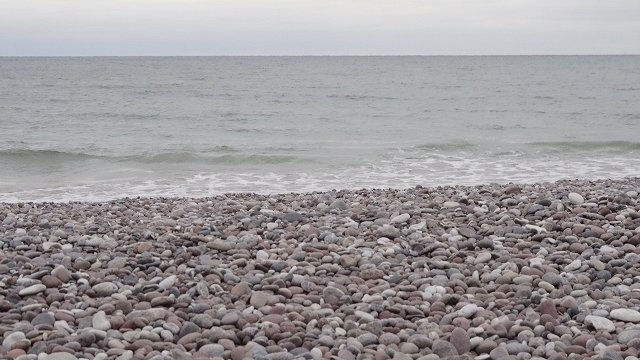"I was just doing my job"
The start of Timchenko's 'wanderings' date to the March 2014 revolution in Ukraine and the country's president Viktor Yanukovych fled following the events at Maidan square. A new president had not been instated yet, and the relations between Russia and Ukraine had soured to the brink of open war. Ukraine's Crimean peninsula had already been overtaken, with a referendum for adding it to Russia in the works.
The popular news website Lenta.ru published an interview with Ukraine's far-right leader Andrei Tarasenko, and the state media watchdog issued a warning to Lenta.ru over perceived incitement of national hatred and violation of law. On March 12, 2014 she was dismissed as the editor-in-chief of Lenta.ru.
Back then the move was reported and largely condemned by European media. Back then, as she does now, Timchenko said, "I was just doing and continue to do my job."
"The first law of journalism is that we're not activists - we're journalists. My task is to ensure our readers have the chance to receive objective information. That's it," she said.
"My task is neither to fight the regime, nor attract attention to myself. My task is to inform.
I am fighting for my readers, for their access to information other than just the official one," she said.
A news portal is born in Rīga
After about six months Timchenko set up an online news source titled Meduza, moving to Latvia together with many colleagues. A total of 22 people are working in the portal. The editorial office was located in Spīķeri and afterwards moved to a large apartment on Valdemāra st.
"Being here, for us, means that we can stop worrying about intermediary things or that which can interfere with our work.
You see, if in Russia you have to think about how it can be directed towards you and you're expecting a knock on the door, a call or a letter from an institution,
here you can work without looking back," she said.
She thinks that in her previous home, life is getting even harder for journalists.
"I don't want to compare it to North Korea, but the praise of the national leader is going on. The opportunities of rights and liberties are shrinking. The State Duma has adopted the so-called Yarovaya pair, the anti-extremist set of law [that] is actually fighting not extremism but rather different opinions and freedom of speech," said Timchenko.
For this reason not only journalists, but also non-governmental organizations are forced to leave Russia.
"[..] Several environment activists were fighting to retain the nature preserve in Krasnodar, and they had to leave too. For now I think that the policy of the current Russian power is such: the door is open. Anyone who disagrees can leave - we want to remain with those who think like we do," she said.
Learning the language is tricky
Meduza's second birthday in Rīga is celebrated in an understated fashion - it's not a round birthday after all, says Timchenko.
However they have thought about their readers, as the management and journalists answer to readers' questions in front of a camera in a special program.
But what about the daily life in Latvia - do they feel accepted here and are they learning Latvian, which they promised to everyone two years ago?
"I remember this promise. [..] I am seeing a teacher. I'm a bad student and sometimes skip my visit when I have to go on a mission. It's slow, and the word-endings are very tricky. I have, it seems, grown old, and my memory has become worse. I'm shy to speak. I'm very shy. But I can already read," said Timchenko.
The staff aren't very good at the language yet as well. Timchenko says that the surroundings don't make her speak Latvian. She thinks if she were in France she would have been speaking the language after two years.
"You can always speak Russian or English here. As I speak both Russian and English, it doesn't pose a problem," she said.
Latvia doesn't make her feel like a stranger
Timchenko says she feels integrated in the local society. "Integration - that means when you're absolutely involved in the daily life. When you don't feel like a stranger," she said, pointing out that she has never felt disliked due to her Russian nationality.
The head of Meduza admitted that she has nowhere to return in Moscow. The yard of her house is locked, the nearby school has been fenced in, the playing square is in private hands and demarcated by a brick wall.
"Everything changes so fast in Moscow that you don't have the chance to return and look outside the window you used to look from when you were a child," she said, adding that Rīga is her home now.
"When I fly into Rīga from somewhere, when I step off the plane I say, 'phew, I'm home'," she said.






























